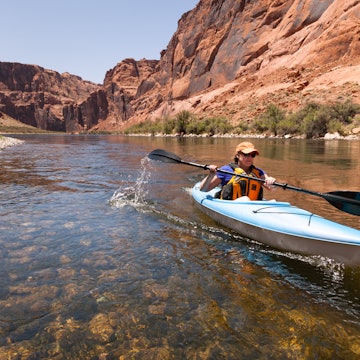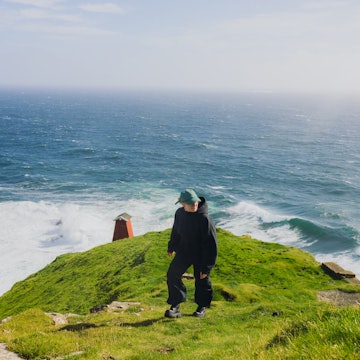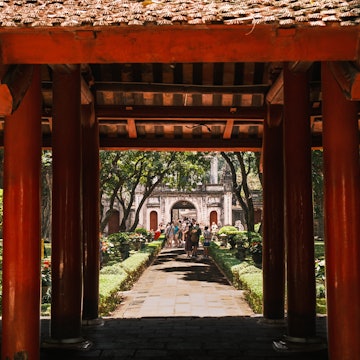

Andrew in Cochise Stronghold, Arizona © Andrew Peacock
Andrew Peacock is an ER doctor in Brisbane, Australia, who spends part of each year traveling as an expedition doctor, photographer and leader.
We caught up with him to find out what it’s like to be an expedition doctor, what he’s learned, and how the pandemic has affected his travels.
How did you become an expedition doctor?
I didn’t even own a backpack until I started climbing at the age of 26. Growing up, I was interested in photography and travel but not adventure sports.
After I became a practicing doctor, I took up rock climbing and mountaineering. At that point, I started to look for ways to combine my medical skill set with the pursuit of adventurous outdoor activities and volunteered to work in the mountains of Nepal and India as a first step.
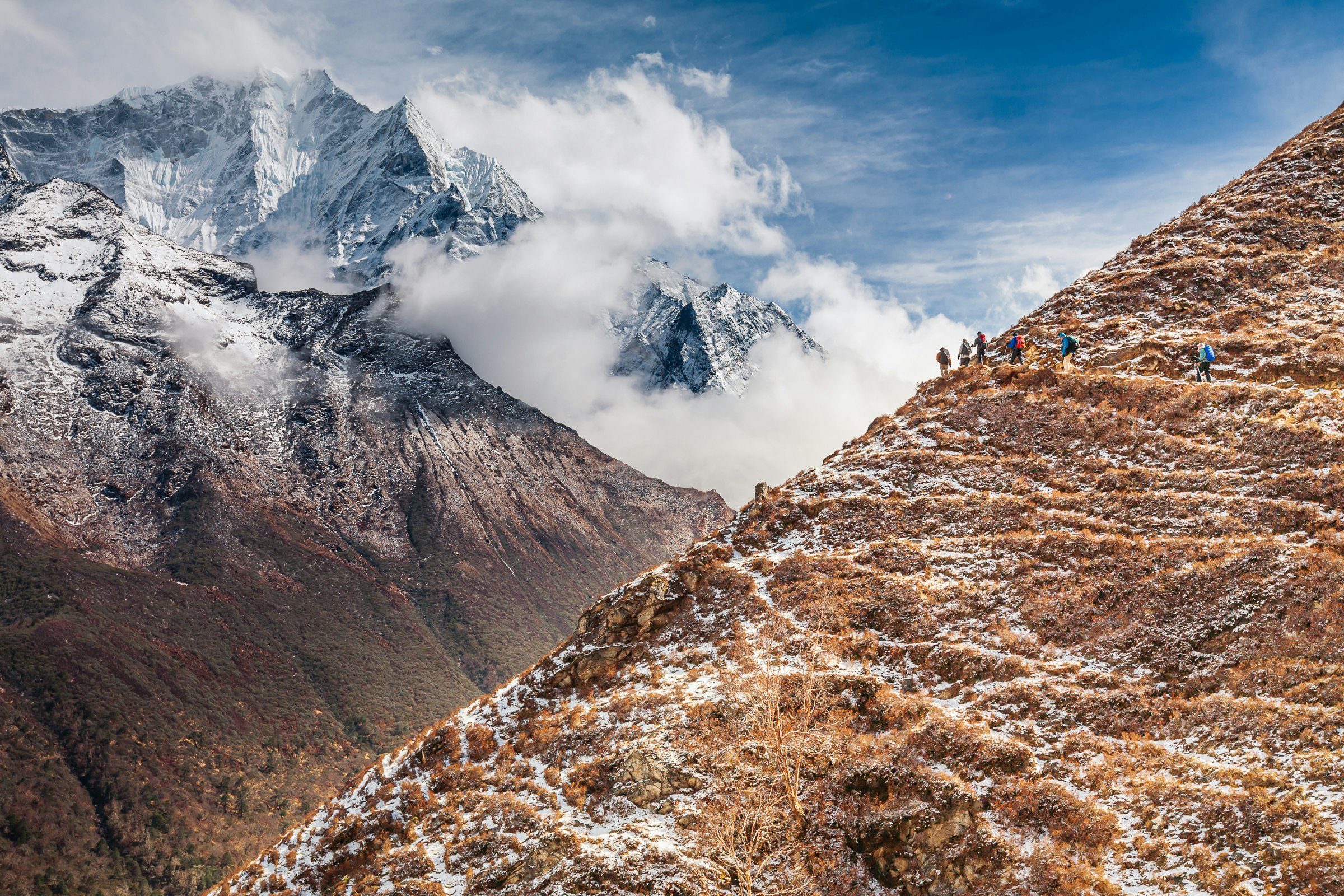
How far did your training as an emergency doctor prepare you to be an expedition doctor? What other training or learning-on-the-job did you do?
This is a role you learn by getting outdoors to gain skills and experience, then marrying that with a good general medical knowledge and problem-solving base. I haven't done any formal coursework in expedition medicine.
Can you tell us about your first trip?
On my first real trip, as one of two climbing doctors on an Australian expedition up 8013m (26,289ft) Shishapangma in Tibet, I treated a burly policeman from Darwin who had a painful thrombosed hemorrhoid. It’s an awkward procedure. He swore never to climb again with a doctor who had hands as big as mine.
What is the biggest group you have looked after and what did you do for them on an everyday basis?
Much of my role is about preparation and prevention, not treatment: keeping an eye out and mentally noting who isn’t doing what they need to do to stay well and acting accordingly. Turning one or two around early, for instance, before they run into real trouble.
Can you tell us about an incident or example of illness on an expedition?
On Kilimanjaro, late in the day, high on the mountain, a woman developed high-altitude pulmonary oedema. The diagnosis was straightforward, but managing resources and deciding on the best method, timing and route to get her down was the real challenge.
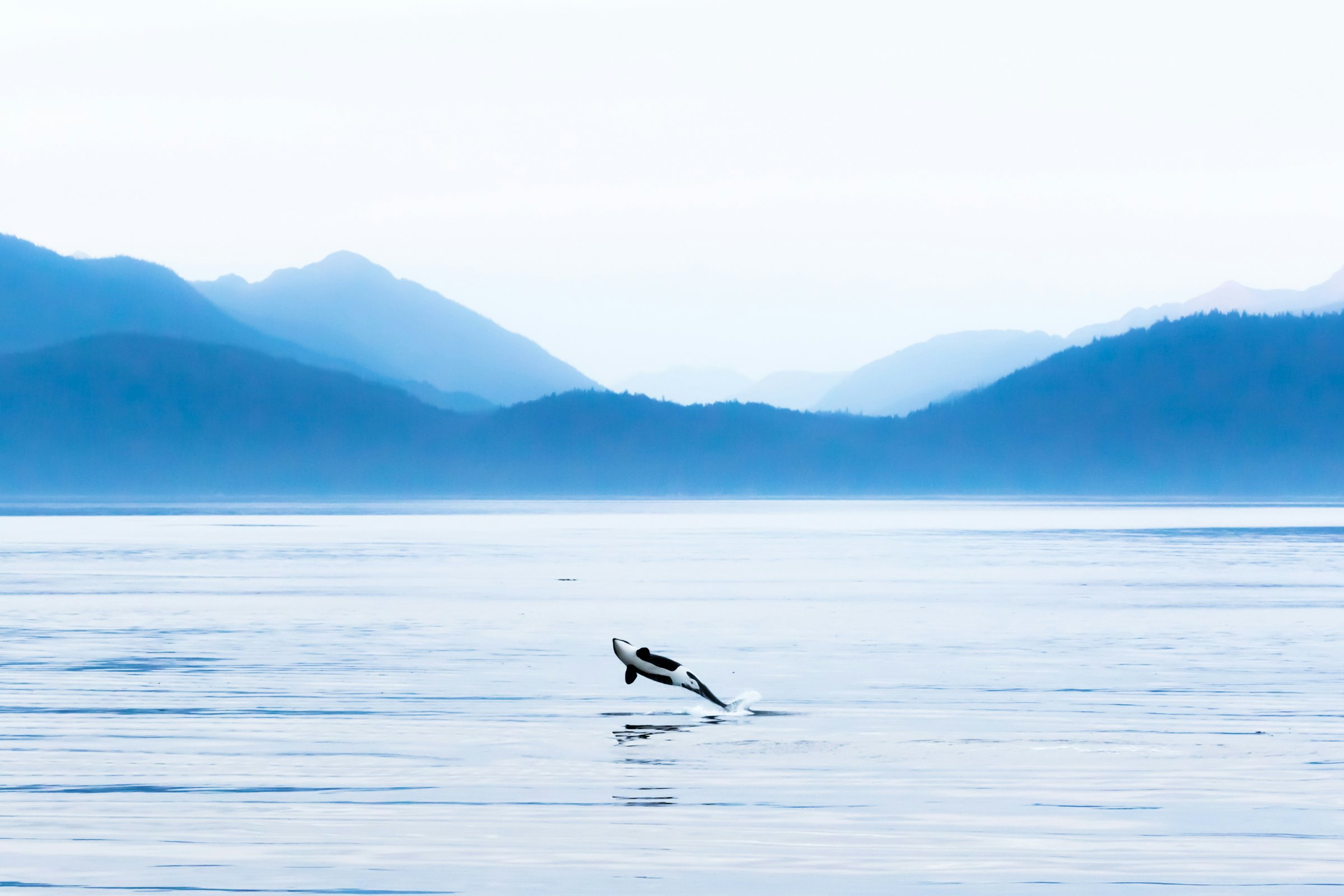
Is there a mental health aspect to your work, too?
Managing anxiety is a substantial part of my role. I have to understand when physical symptoms emerge as an excuse for not wanting to continue, and be able to tell the difference between real concerns and imagined concerns. One woman on an Everest Base Camp trek had chest pains the day after I evacuated her friend for the same symptom. One was actual pain, the other a symptom of anxiety at altitude.
What advice do you give to first-time trekkers?
My advice to first-time trekkers is to prepare yourself physically according to the physical exertion you're expecting to undertake. And don’t forget to protect yourself from the environment: cold, hot, sun, dust, bugs.
What are your interactions with local people like during your expeditions?
My first foray into mountain work was memorable because of the local people I met and cared for. I experienced all sorts of interesting interactions, from caring for a horse gored by a yak owned by the head lama of a village in Nepal to amputating the severely damaged finger of a Tibetan carpenter working at a monastery in northern India.
What is the most beautiful place you have ever woken up in?
Waking up in a tent on the Antarctic Peninsula was exceptionally exciting. One of the most beautiful places I've ever woken up was on a rock ledge high up a major climbing route in the Bugaboo Mountains of Canada.
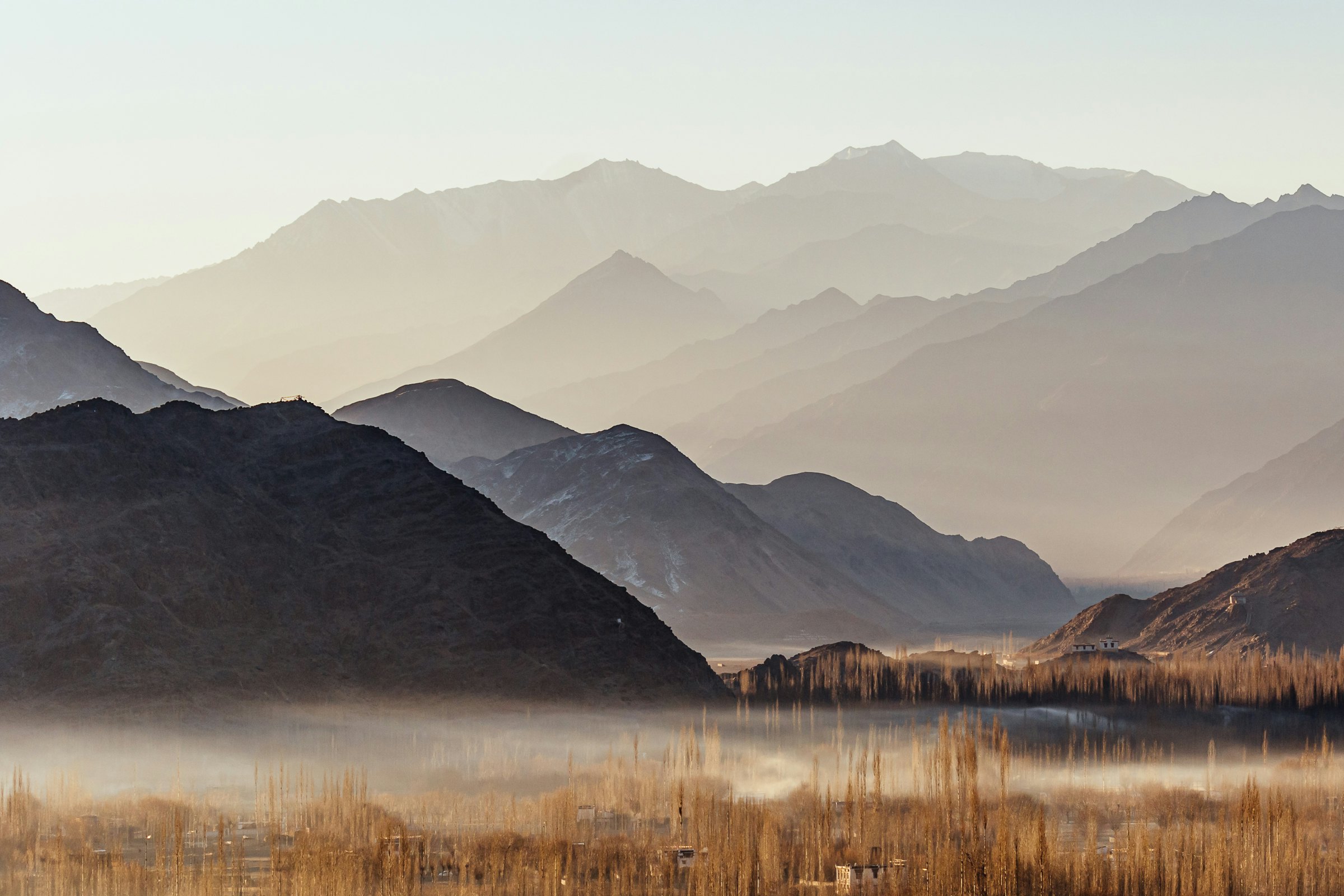
Tell me about one or two experiences where you have really discovered a remote destination?
It’s hard to call anywhere truly remote these days. When I was in Nepal in 1996 we hiked into Tilicho Lake in the Annapurna range, which was super-remote then – now you can drive much of the way. Hiking in northern India and certain areas of Ladakh are pretty well off the beaten path, and being a doctor on a private ship exploring the Ross Sea region of Antarctica was special because not many people get to visit the places we explored.
What region would you like to visit as an expedition doctor and why?
My experience lies mostly in cold environments. I’d love to learn more about remote jungle environments – somewhere like the Amazon region, for instance.
How do you make it all work together as leader/doctor/photographer? How do you recharge or relax?
There's a good balance to what I do: there’s lots of travel, but I don’t have kids, and my wife often is able to travel with me. I’m lucky enough to split my time between small-ship expedition contracts as a leader or photographer around the world with casual work at an ER in Australia.
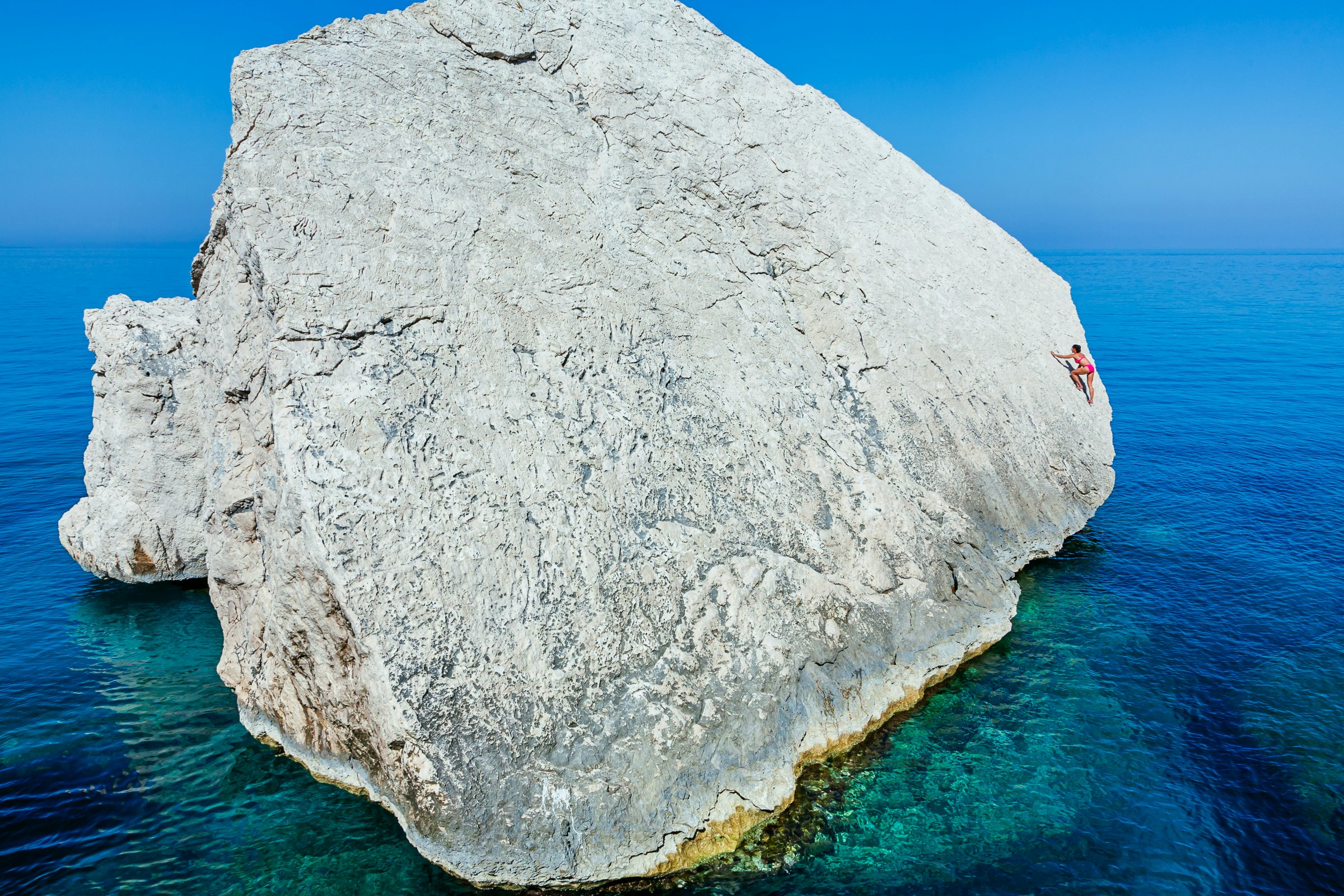
Do you travel for pleasure, and where?
To relax and recharge, I travel wherever there is good rock climbing and preferably good food. Sardinia or the Dolomites stand out among previous trips that ticked those boxes. My wife and I took a winter trip to Arizona – the rock climbing there is awesome.
What do your travels as an expedition doctor teach you about human nature?
There is always much to learn about people, no matter how long you’ve been doing the same work.
What are you doing during lockdown?
I am very fortunate to live on the Sunshine Coast in Queensland where our nearby beaches and public spaces are open for exercising and since early morning fitness sessions have been a lifelong habit for me this is something I'm continuing with ocean swimming or ocean surf-ski paddling at dawn every day.
I am working some days in the Emergency Department but clearly we have done well in all respects so far in Australia with regard to keeping our total number of cases well below what would have overwhelmed our health system and so it hasn't been very busy as our total presentations have actually decreased.
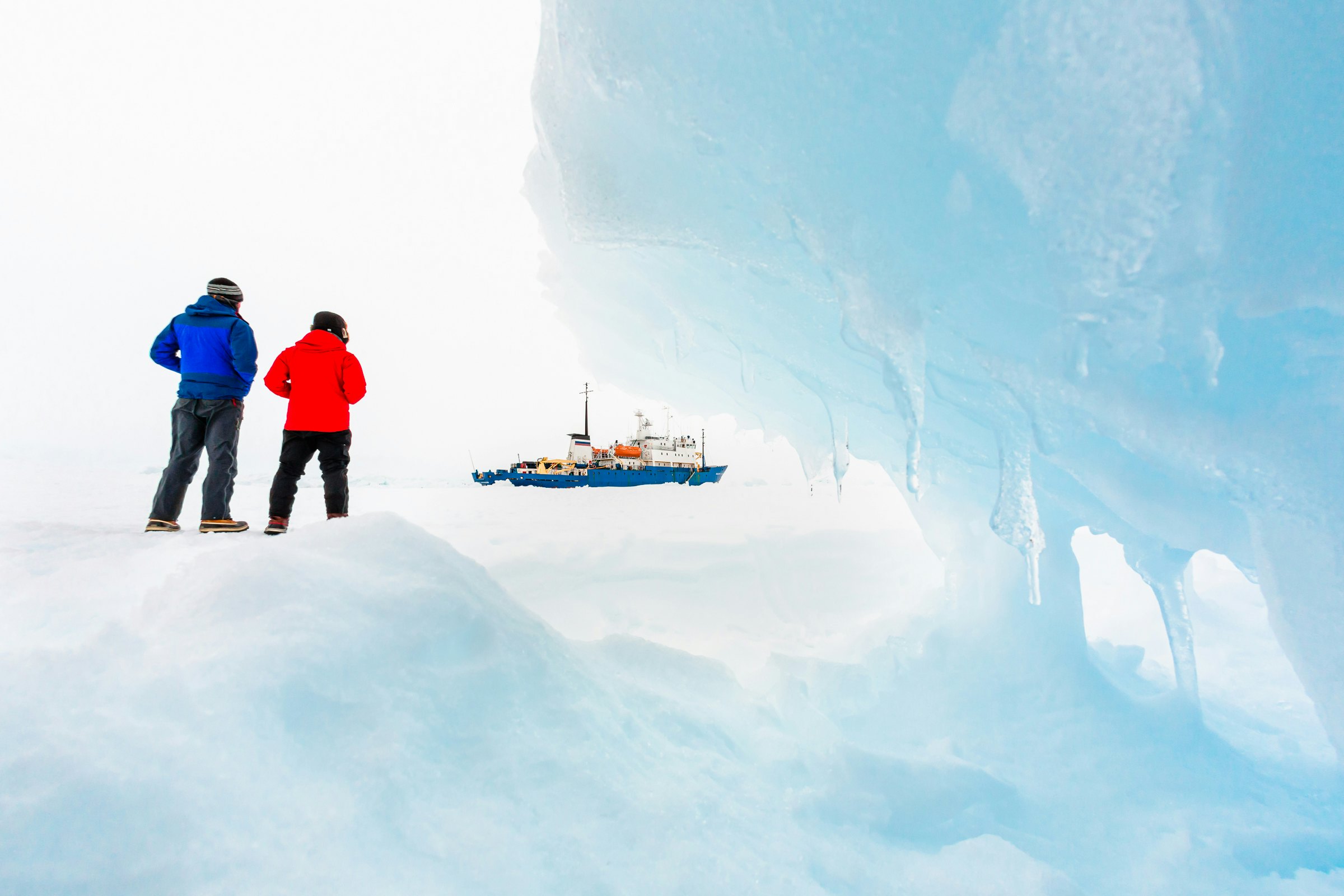
How have your expeditions prepared you for lockdown? In terms of being confined or alone with others? Or alone with yourself?
I was the doctor on a small Antarctic Expedition ship that was beset by ice off the coast of Commonwealth Bay a number of years ago. For over two weeks, we were unable to get free and were at the mercy of the weather and large icebergs that were moving near us. That was a little taste of what it's like to be in a relatively confined space with anxious people that have little control over their situation. A daily routine was quickly established and distracting activities commenced to occupy our thoughts and energy.
Experiences like these teach you how to be self-reliant to an extent and to understand that situations that are out of your control cannot be forced into submission or fought against but simply accepted. Acceptance allows for time for self-reflection and the marshalling of energy and attention toward positive things.
Any trips that were canceled or postponed due to the pandemic? What is your outlook on work and travel post-pandemic?
Unfortunately yes, many! This year was shaping up to be full of interesting travel for work and pleasure. Right now I should be finishing up leading a trek to Everest Base Camp in Nepal, one of my very favorite places on earth. Then I had trips contracted as a photo instructor and expedition leader in the Arctic, Iceland and in Alaska that obviously can't go ahead.
I'm hopeful the 2020/21 Antarctic travel season might mark a recommencement of expedition ship travel when I have work scheduled but that's a long way off and we really don't know what the post-COVID-19 era of overseas travel is going to look like just yet. Staying healthy and fit and looking after others through my medical work is what I can focus on for now.
You can find out more about Andrew at his website and on Instagram @footloosefotography.
You might also like:
Writer Mark O'Connell on preparing for the end of the world
On these remote Indonesian islands, isolation is part of everyday life







